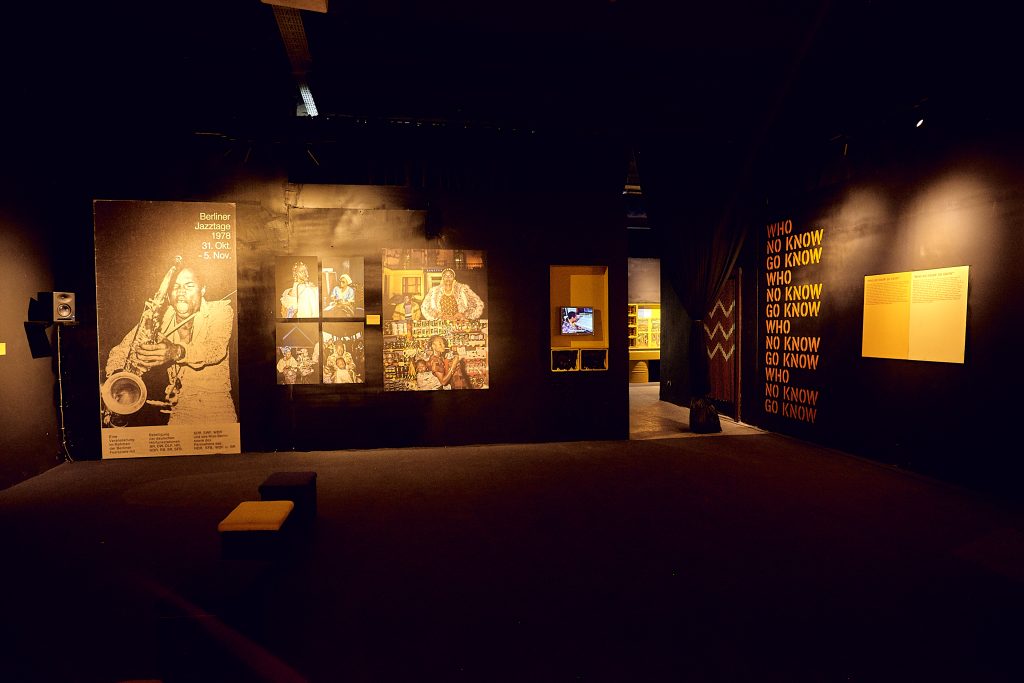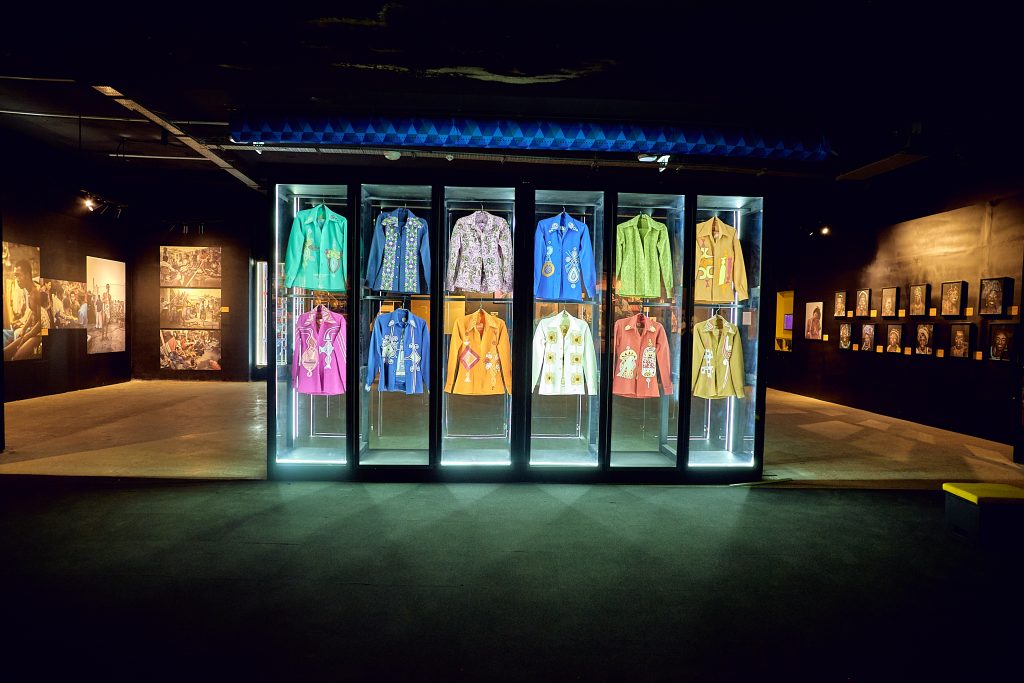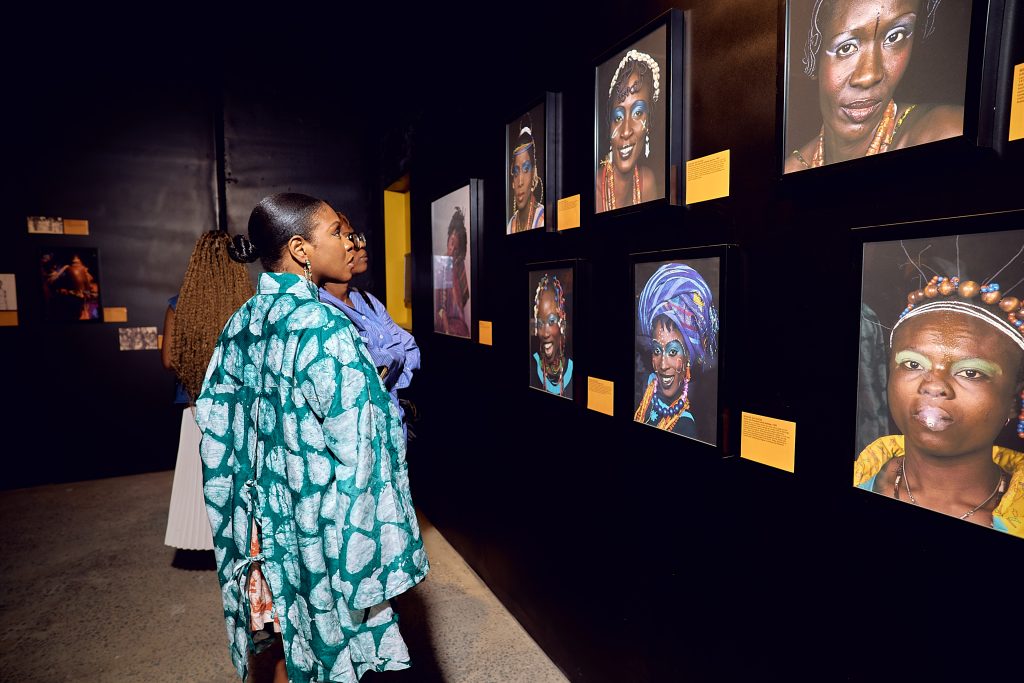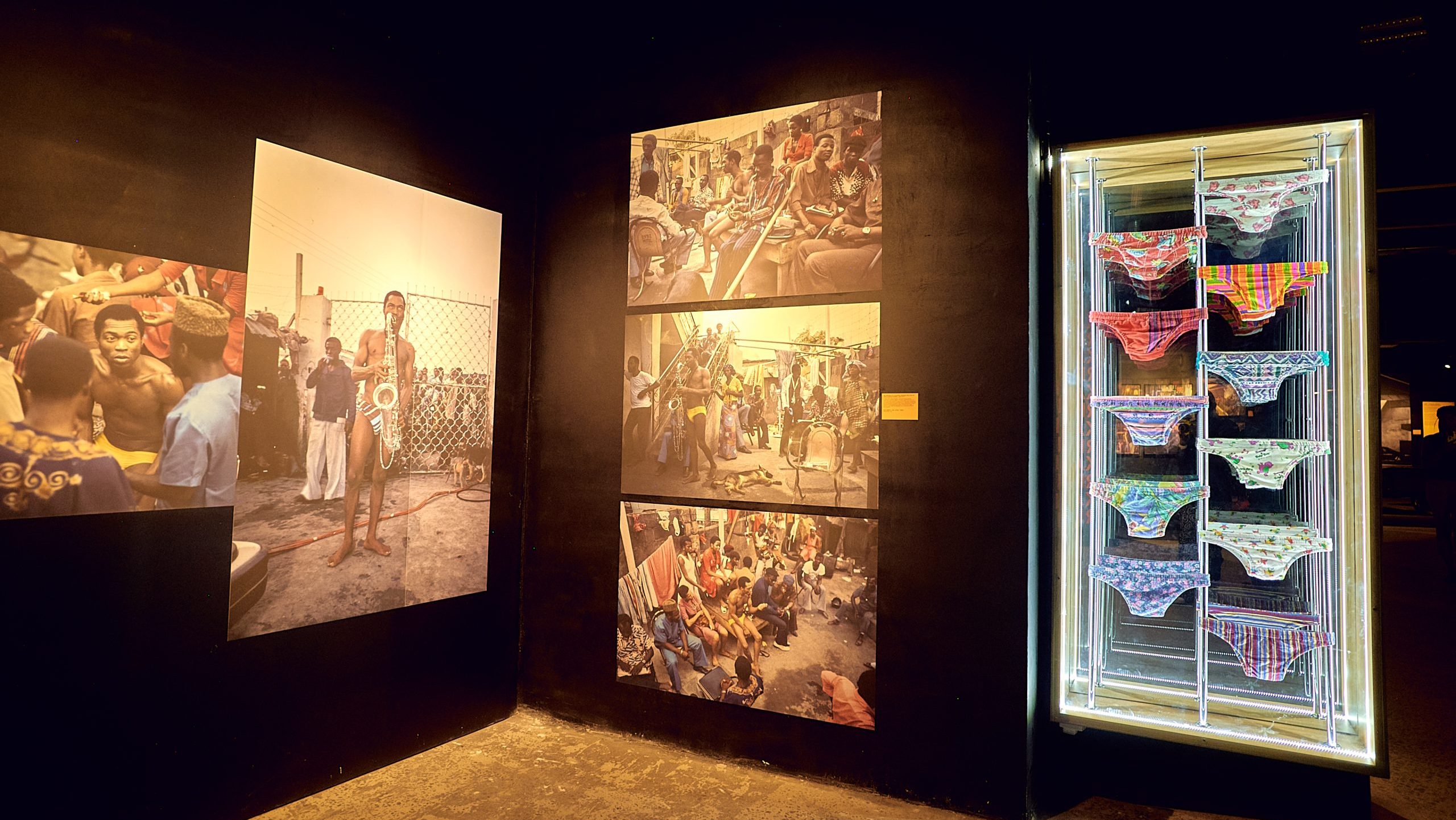Fela Anikulapo-Kuti was not a forgettable man, for those who witnessed his legend as it unfolded. And for those of us who didn’t get to share time and space on earth with him, his name is one that has always rung familiar, even though we likely cannot pinpoint when exactly he came into our consciousness. For all of us, like all of us, he’s many different things: a talented musician, an opinionated activist, a family man, a hero, a villain, a role model, a black sheep; depending on who you ask.
The Fela Kuti: Afrobeat Rebellion exhibition, presented by A Whitespace Creative Arts (AWCA) Foundation in collaboration with the Kuti family, the French Embassy in Nigeria, and the Philharmonie de Paris, showcases all of these sides. The immersive, multi-sensory showcase, currently open at the Ecobank Pan African Centre in Lagos, brings Fela’s world to life, not just through music, but through the sounds, sights, and emotions that shaped him. It’s a journey through rebellion, rhythm, and radical honesty.

Each section of the exhibition captures a fragment of the man behind the myth. In Lagos Baby, visitors encounter the early stirrings of his genius: the curious young man experimenting with jazz and highlife, unknowingly crafting what would become Afrobeat. Kalakuta Republic dives into his political awakening and the cost of choosing truth over compliance, a recreated glimpse into the commune he created as a sanctuary, which was ultimately defiled by the Nigerian military.
Then there’s The Shrine, a space that transcended performance to become protest, pulpit, and parliament all at once. The exhibition mirrors this energy, using mirrored installations, flashing lights, and soundscapes that pull you into the chaos and charisma of Fela’s live shows. You feel his presence not as nostalgia, but as a living, breathing force.
But Afrobeat Rebellion doesn’t only retell Fela’s story, it reframes it. In the Queens section, the curator, Seun Alli (who is the founder/CEO of June Creative Art Advisory), sought to remind visitors that Fela’s rebellion was never a solo act. His dancers, wives, and muses were central to his art and ideology, embodying strength and solidarity. Their often-overlooked stories take centre stage here, expanding the narrative from one man’s defiance to a collective resistance.

Afrobeat Rebellion uses multiple channels to tell Fela’s story and challenge people’s preconceived notions about him. There are the expected photographs of him through multiple phases of his life, but we’re also shown images of revellers at his performances, in which you can sense how much being there meant to them. We see his stage outfits, but also the underwear he had a penchant for lounging in at home, which led to the misinformation commonly perpetuated about him performing publicly in his unmentionables. Flyers announcing his shows act like a time capsule, eternally preserving an era in which you could witness one of the country’s biggest stars for just N2. There’s an archival section containing newspaper clippings, in English and French, of different articles written about him. In that same vein, there’s a library section containing books written about him that everyone is welcome to read. Perhaps most striking, however, is the giant wall delineating his illustrious pedigree, reminding us that he was indeed a nepo baby who somehow managed to be exactly what you’d expect from a Ransome-Kuti (a highly educated, vocal rebel, standing up for the masses to the powers that were) and simultaneously the exact opposite (an openly heavy user of illegal drugs, an irreverent scoundrel).
At its core, the exhibition is about more than music. It’s about courage, contradiction, and conviction. It invites you to see Fela not as a saint or sinner, but as a man who dared to live loudly in a world that demanded silence. In doing so, it challenges us to think about what rebellion looks like today and what we, in our own lives, are willing to stand for.

You can catch the exhibition every weekend from now until 28th December, 10am – 6pm Fridays through Sundays, with Thursdays available for VIPs and institutions. It includes side programs like audiovisual screenings tagged Kalakuta Cinema, a children’s section named Young Rebels Corner, and live music by Fela’s descendants, Femi and Made Kuti, among others, curated by Lanre Masha. General admission is free, while RSVPs are required for talks, workshops, book readings, and cinema screenings due to limited capacity. Ticketing is available via Luma.
Whether you walk through for the art, the archives, or the ambience, Afrobeat Rebellion leaves you with one undeniable truth: Fela Anikulapo-Kuti wasn’t just ahead of his time; he was trying to drag his time forward with him. And that’s a legacy worth remembering.




